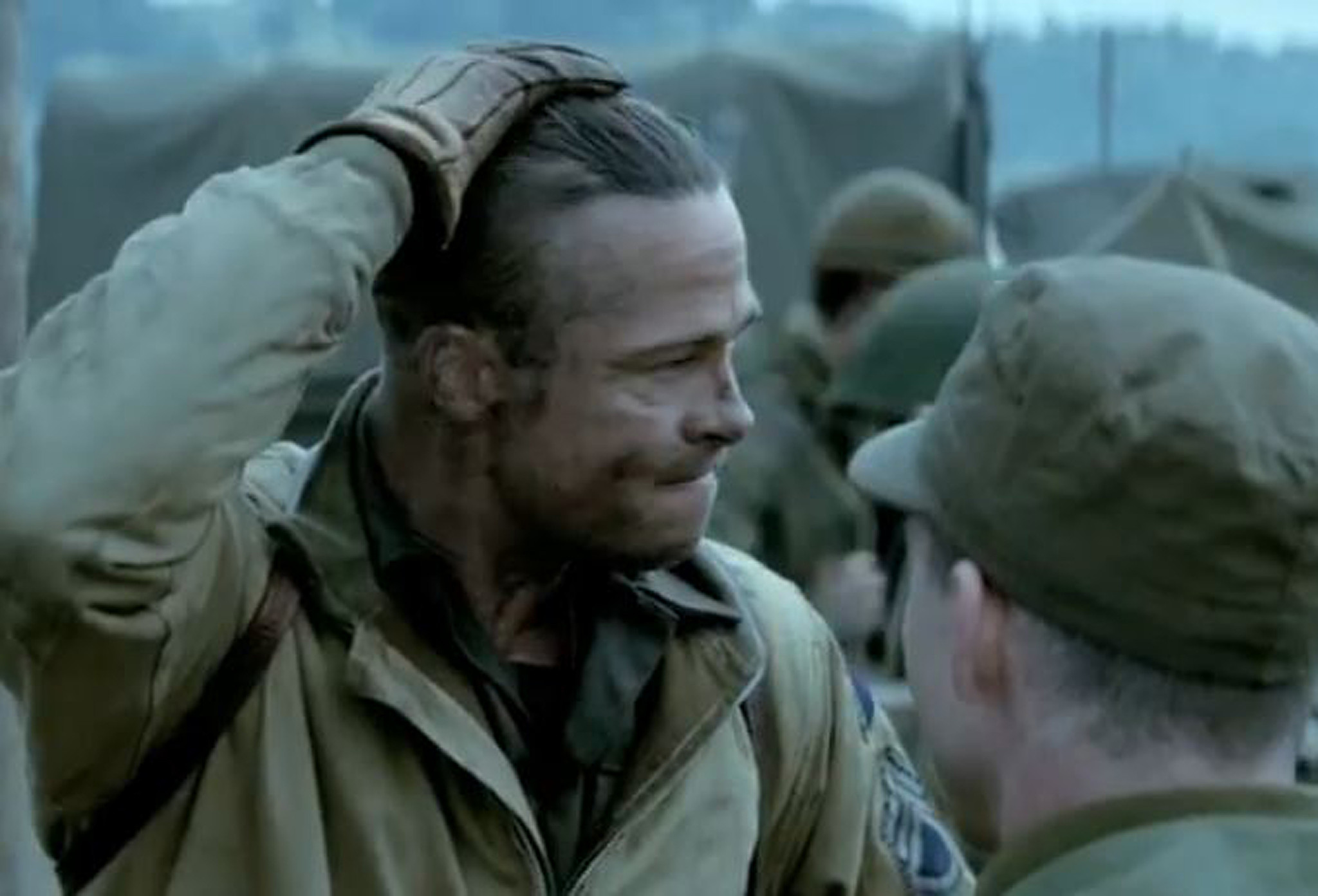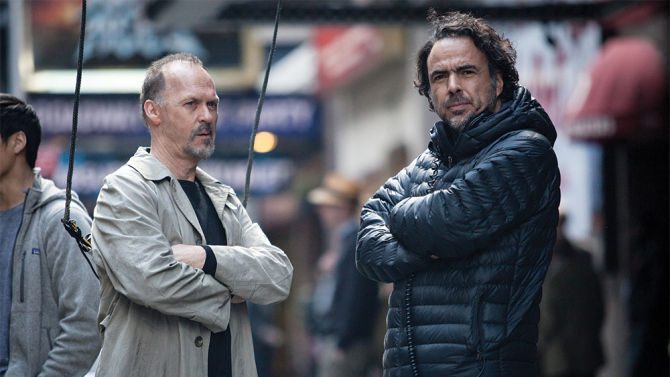Review: Fury
 Saturday, October 25, 2014 at 3:01PM
Saturday, October 25, 2014 at 3:01PM Michael C here wondering if we are ever going to get more films about 20th Century conflicts other than World War 2? How long has it been since we've had a solid Vietnam film? Did Three Kings and Jarhead say all there was to say about the first Iraq war?
 At this point, it feels like there are enough World War II movies to reconstruct something close to the entirety of the conflict, across all theaters of operation. Audiences can be forgiven if the appearance of yet another crew of hard-bitten soldiers marauding through the German countryside in David Ayer’s Fury strike us as more than a bit superfluous. The diffrence this time is that Fury wants to strip away the gauzy Greatest Generation glow that has diminished other depictions of this subject matter. No American flags flapping in the wind, no swells of violins, no famous battles. Just the anonymous, grisly work of tank combat in the waning days of the war, where the only task left is to feed enough of the remaining enemy into the meat grinder to hasten the inevitable German surrender.
At this point, it feels like there are enough World War II movies to reconstruct something close to the entirety of the conflict, across all theaters of operation. Audiences can be forgiven if the appearance of yet another crew of hard-bitten soldiers marauding through the German countryside in David Ayer’s Fury strike us as more than a bit superfluous. The diffrence this time is that Fury wants to strip away the gauzy Greatest Generation glow that has diminished other depictions of this subject matter. No American flags flapping in the wind, no swells of violins, no famous battles. Just the anonymous, grisly work of tank combat in the waning days of the war, where the only task left is to feed enough of the remaining enemy into the meat grinder to hasten the inevitable German surrender.
It's a compelling argument for Fury's existence, at least for the first half of the film. As the tank rolls along, however, Fury surrenders its attempts to navigate the harsh no man’s land where ethics and war collide. What began as a corrective against the false comfort of your granddaddy’s war films morphs into a compilation of war movie clichés, complete with characters dying in order of billing, and glorious hero shots of doomed last stands against impossible odds. By the end it’s Frank Miller’s 300 with tanks.
“Ideals are peaceful, history is violent,” says Brad Pitt's weathered tank commander Wardaddy.

 Brad Pitt,
Brad Pitt,  David Ayre,
David Ayre,  Fury,
Fury,  Logan Lerman,
Logan Lerman,  Reviews,
Reviews,  Shia Labeouf,
Shia Labeouf,  WW II
WW II 





